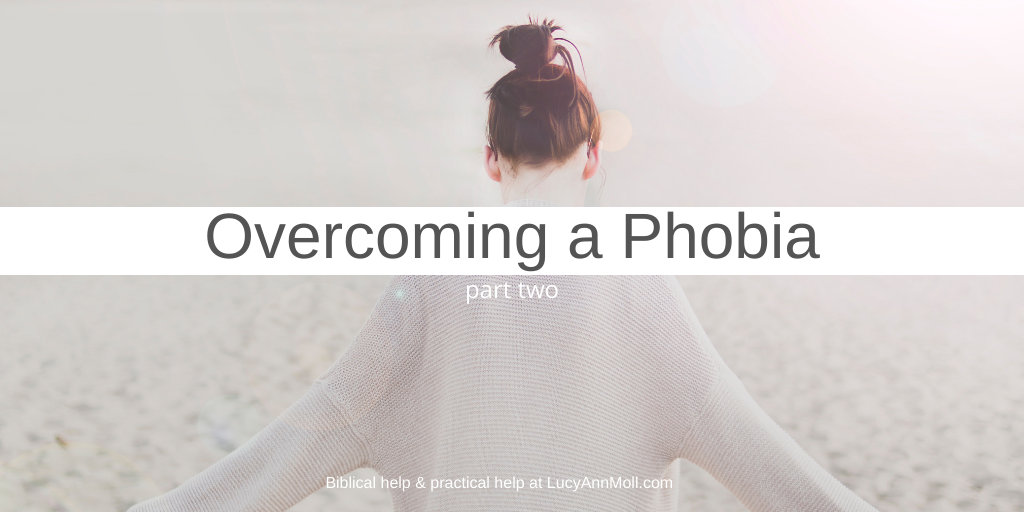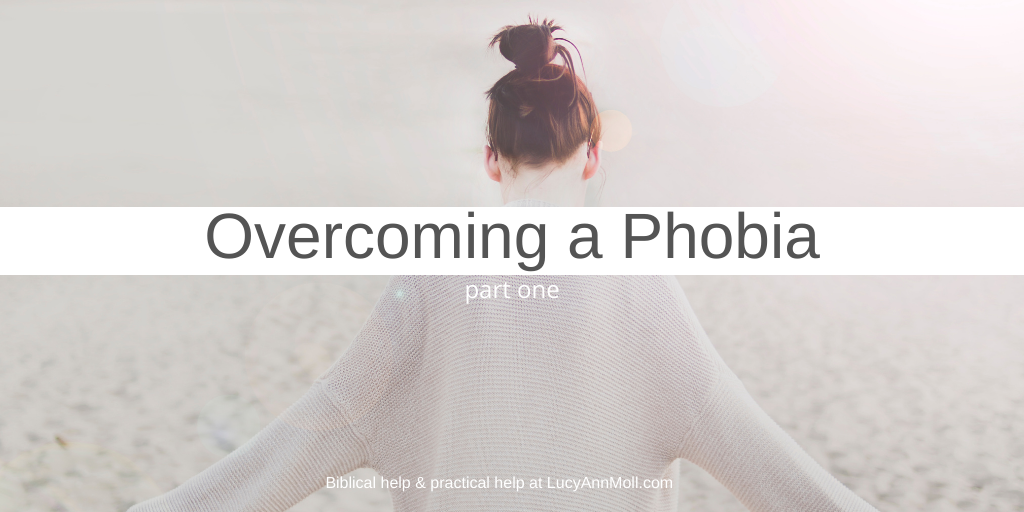What do wacky hormones, anxiety, and loss of sexual desire have in common? In a word, menopause!
Erratic hormones, especially estrogen, may bring on “menopausal rage,” that need to bite off someone’s head for no good reason whatsoever. They also may create an anxious or depressed mood. Again, for no apparent good reason.
Some doctors prescribe antidepressants to help with anxiety during menopause, to lessen hot flashes and night sweats, and to counter insomnia.
If any of this sounds familiar, read Lisa’s story below. This article appeared first here at The Biblical Counseling Coalition, where I write often.

“What’s wrong with me?” my married friend Lisa blurted. “My sleep is awful, I get horrible hot flashes, the pounds keep piling on, and I turn from Dr. Jekyll into Mr. Hyde on the daily. And sex? I could not care less. Seriously, I miss my youth!”
Lisa’s angst is shared by a growing population of women in midlife (ages 45 to 60) who are experiencing menopausal symptoms due to fluctuating hormones including night sweats and mood swings. Older women over 60 also have symptoms but of a different sort. For instance, while hot flashes may fade, vaginal dryness and painful intercourse may increase. So do other signs of aging.
Let’s survey some of the physical, emotional, and relational changes in menopause and how a counselor might help a woman in this transition.
What Is Menopause?
Menopause is a stage in a woman’s life when she has stopped menstruating. It is normal and natural (Ps. 139:14) but often unwelcome and unsettling.
Sometimes a doctor will prescribe an anti-depressant since her complaints seem to fit the DSM-5 definition of depression or to help relieve hot flashes, night sweats, and skin flushing.
But, when a woman in midlife seeks help and hope from a biblical counselor, very rarely would she list “menopause” as the reason. More likely, she would mention problems like stress, marital difficulties, poor self-image, depression, and anxiety.
A Time of Loss, a Time of Wisdom
Loss is the operative word during this transition. Indeed, it is a time of greater and lesser losses. To understand how a counselor may help her, let’s first look at the phases of menopause. Then we’ll consider two of the many losses.
That said, menopause can also be an exciting and creative time as a woman shares her wisdom with others. She is anything but “washed up.”
Scripture highlights several older women. For instance, Anna was a widow and prophetess who served God with fasting and prayers (Luke 2:36-38). Sarah, the wife of Abraham and the mother of Isaac, is listed in the Faith Hall of Fame (Heb. 11:11). And Titus 2:3-5 outlines the ministry of an older woman to a younger woman.
Proverbs 31:25 reminds us, “Strength and dignity are her clothing, and she smiles at the future.”
Phases in Menopause
Peri-menopause
During this phase, the ovaries start to make less hormones, causing fluctuating levels of the hormones estrogen and progesterone, as well as less testosterone. Peri-menopause typically lasts two to eight years and sometimes as many as 13 years. Hot flashes, weight gain, night sweats, and insomnia are common.
Menopause
A woman’s period stops completely in this phase. The ovaries no longer release eggs, and estrogen levels become very low. The average age of menopause is 51.
However, one in every four American women will enter an abrupt, artificial cessation of menstruation caused by a medical procedure such as a hysterectomy. In addition, a small minority of women go through premature menopause by age 40 or younger. She may have had an illness or a chronic stressor that adversely affected the reproductive hormones.
Post-menopause
These are the years from menopause through the end of life. Her symptoms may start to fade away but could continue for a decade or longer. Other common problems like vaginal dryness and painful intercourse often increase, but they can be mitigated through the use of personal lubricants and Hormone Replacement Therapy. A talk with her doctor about fluctuating hormones would be wise.
Greater and Lesser Losses
Greater and lesser losses mark these phases of menopause. Two of the most common ones are the loss of a youthful appearance and the empty nest.
But there are many other changes as well. For instance, a woman’s marriage may end (either through death or divorce). She may retire, be disabled, or start a new career or ministry. She may become the primary caregiver to her ill parents, or she may succumb to a disease such as heart disease, hypertension, diabetes, cancer, or osteoporosis.
Loss of Youthful Appearance
With every new wrinkle, a woman in midlife may fret over her self-image and be filled with anxiety. To recapture her beauty, she may diet, cover her gray hair, or turn to plastic surgery, among other things, as she focuses on herself. While not all of these behaviors are sinful, the heart motives and desires behind engaging in them may be.
How might a counselor help her? A counselor might remind her that “charm is deceitful and beauty is vain, but a woman who fears the Lord, she shall be praised” (Prov. 31:30). True beauty flows out of a heart that trusts God. She also needs to know her identity in Christ. Excellent passages include 1 Peter 3:3-5, Proverbs 31, and the book of Ruth.
The Empty Nest
When a woman finds her meaning in motherhood, she may think she is out of a job and feel unsettled, even despondent, when her last child leaves home. Additionally, if one or more of her children are unbelievers, she may wonder whether she failed God.
How might a counselor help her? A counselor may help her know that after she has raised her children, new opportunities open. She might finish her degree, begin a Titus 2 ministry to younger women, start a business, or like the excellent woman, consider “a field and buy it” (Prov. 31:16).
Now for the End of the Story
Lisa, who we met up top, began to use a cold pillow for hot flashes at night, over-the-counter melatonin for sleep, and K-Y Jelly for lubrication during sex. She wished she still looked 30 years old but is becoming more and more comfortable in her body, knowing she birthed three children, now adults and getting on in life, just as she had always hoped and prayed.
Truly, menopause is a time of greater and lesser losses as a woman faces the physical, emotional, and relational changes in this transition. She will most likely face a myriad of struggles that this article barely introduced. But she can grow in wisdom and grace and humor too.
As Elyse Fitzpatrick shares in The Afternoon of Life, “The one whose love and understanding you need is there with you today, as he has always been, and he weeps and smiles with you.”







